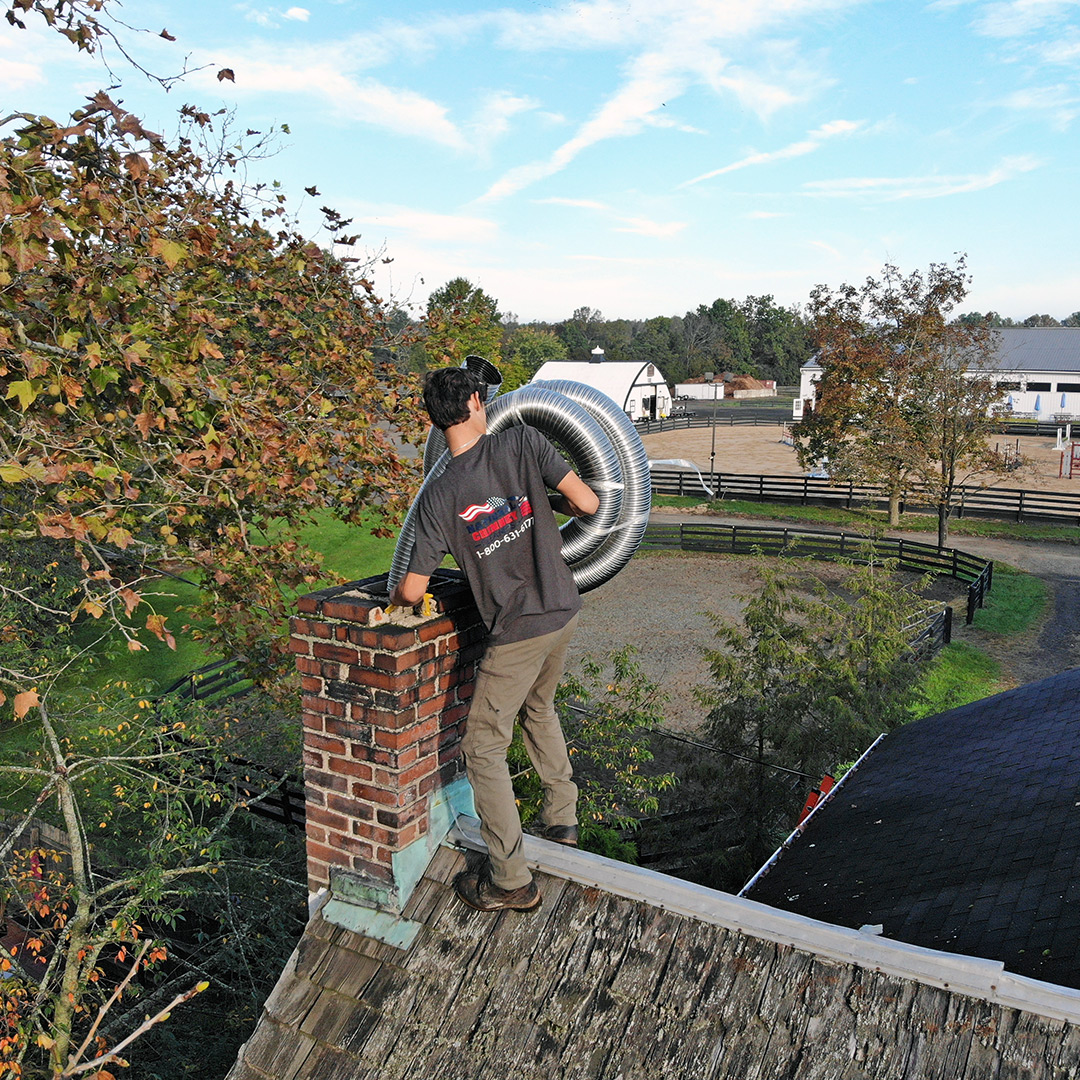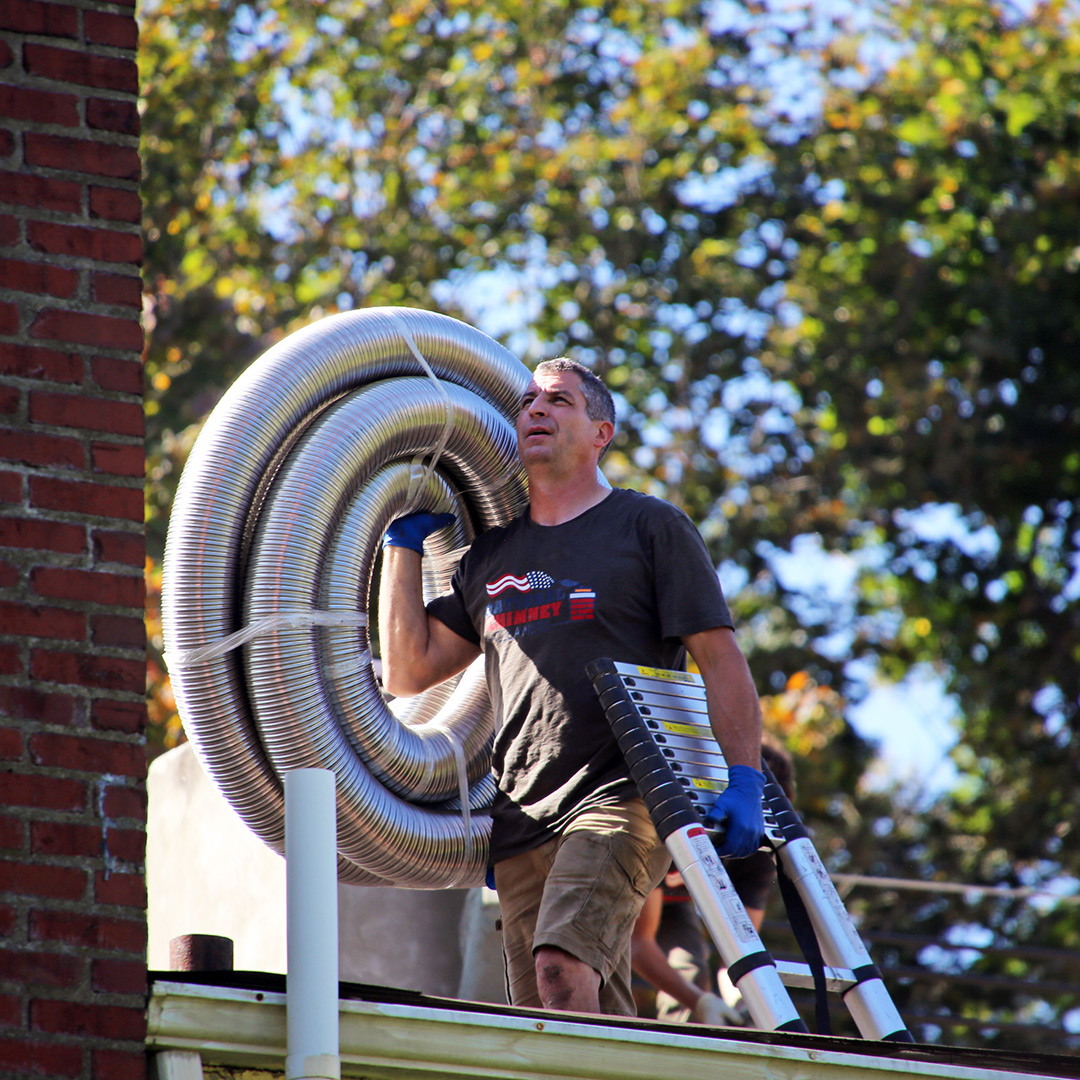Why You Should Have Your Chimney Insulated
When we talk about chimney insulation, we don’t mean putting a shroud over the outside of a chimney like we would put a coat on our bodies. Rather, we’re talking about special insulation that wraps the chimney liner inside the chimney structure. National Chimney Cleaners of Fairfield County, CT, and Morris County, NJ, would like to share a few of the major benefits of having your chimney insulated.

created by dji camera
Types of chimney liner insulation
There are three main types of insulation to go around a chimney liner:
- Blanket wrap: As the name implies, blanket wrap insulation wraps the liner, similar to how you might put insulation around outside pipes for the winter.
- Pour-down: This type of chimney insulation is poured around the liner.
- Panels: Panel insulation is installed by snapping panels in place around the liner.
The purpose of chimney insulation
The reason it’s smart to insulate your chimney is to keep the flue more climate-controlled during and prior to a fire. This is important for two reasons.
A warm flue causes less condensation
When the air inside a flue is very cold and warm air from a fire rises into it, condensation happens. Smoke and gases condensing in a chimney flue is how creosote is formed. Creosote is a flammable, acidic substance that needs to be regularly cleaned out of flues. The more creosote, the more often cleaning is needed. And: the more creosote, the more chance of a serious chimney fire as well as liner damage from the acids.
Appearing as a sticky, flaky or solid substance on the walls of a chimney liner, creosote is responsible for most chimney fires in Connecticut and New Jersey each year.
A warmer, insulated flue lets smoke pass through it faster, resulting in less opportunity for it to condense into creosote.
An insulated chimney drafts better
A good draft keeps smoke moving faster and reduces creosote buildup. It also helps your fireplace run more efficiently. As noted above, the air in an uninsulated chimney will be quite cold, and cold air is heavy. Conversely, hot or warm air is light and has trouble rising through the denser, heavier air in an unprotected flue.
When a chimney doesn’t draft efficiently, several things can happen:
- Smoke can back up into the room.
- Deadly carbon monoxide, which is present in smoke, also can back up.
- Fires burn sluggishly, which, ironically, causes more smoke.
- Wood often doesn’t burn all the way through, wasting much of the fuel.
- Fires are harder to get started and keep going.
Does your chimney need insulation?
A lot of folks don’t know if their chimneys are insulated, particularly if they haven’t lived in their homes for very long. The best way to find out is to have the chimney inspected.

Your inspector will quickly determine if insulation is present and will let you know if any safety or performance issues need to be addressed.
If your chimney also vents a furnace or other appliance, your inspector will be able to recommend the type of insulation that’s best for your system. For those of us who live in Connecticut, New Jersey and other northeastern locales, it’s a wise move to insulate our chimneys. National Chimney Cleaners specializes in chimney insulation projects as well as chimney inspections, chimney repairs and complete chimney sweeping.
Speak with a chimney expert today at (800) 631-6177. You can also get in touch by using our handy contact form.


